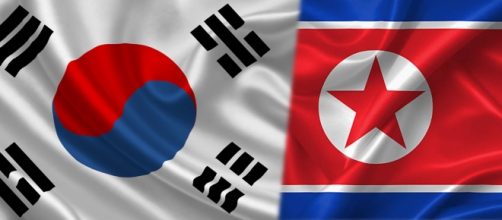In an unprecedented move, the new South Korean government under President Moon Jae-In, approved its first civilian contact with North Korea or the Democratic People's Republic of Korea (DPRK) after getting into office. President Moon's policy of gradual resumption of inter-Korean exchanges is the cornerstone of his campaign that led him to victory.
Why would South Korea still want talks with North Korea?
It is surprising to know that many South Koreans do not believe North Korea is hostile as the West tried to paint it. In a survey made in 2014, only 13% of South Koreans have negative feelings towards North Korea.
More than half of those surveyed believed that cooperation should commence between the north and south. This is the growing sentiment in South Korea today and it is growing after President Moon won the presidency.
President Moon's spokesperson, Lee Yon-Jin told the press that the government had green-lighted a request made by the Korean Sharing Movement to conduct humanitarian work in North Korea. The civilian welfare group wanted to visit the north and help the impoverished people affected by the stringent sanctions imposed by the United Nations. Yon-Jin also added that about 20 requests to visit the north were made and hopefully Moon's lenient policy towards Pyongyang will approve them all.
Why does Moon's administration continue to push a diplomatic conversation with Pyongyang?
Moon is an ardent proponent of Korean reunification. He isn't condoning the continued separation of the two Koreas, which many believe are being orchestrated by the United States. However, Moon believes that only an earnest policy of diplomacy is the only way to pacify the north.
Many do not share Moon's ideas, especially the United States, which is a stern enemy of North Korea. The White House is somewhat weary with the policy being taken by the new South Korean administration, but it will be bad for the United States if the two Koreas are united under terms which North Korea has proposed.
What are America's plans to halt North Korea's continued belligerence?
President Donald Trump had met with Japanese Prime Minister Shinzo Abe to discuss expanding the sanctions already imposed on North Korea. This is in hopes that the added strain will break Pyongyang's resolve to maintain a costly and resource intensive nuclear and ballistic missile program.
Aside from this, the United States air force is in the process of conducting a test of its anti-ICBM capabilities that will ensure the safety of U.S. troops from attacks coming from North Korea. However, with the new regime in South Korea that slowly desires to unite with the North, the United States will have no way of stopping such an arrangement. It may seem that the days of U.S. influence over Asia is now numbered.


